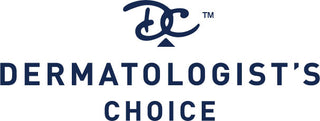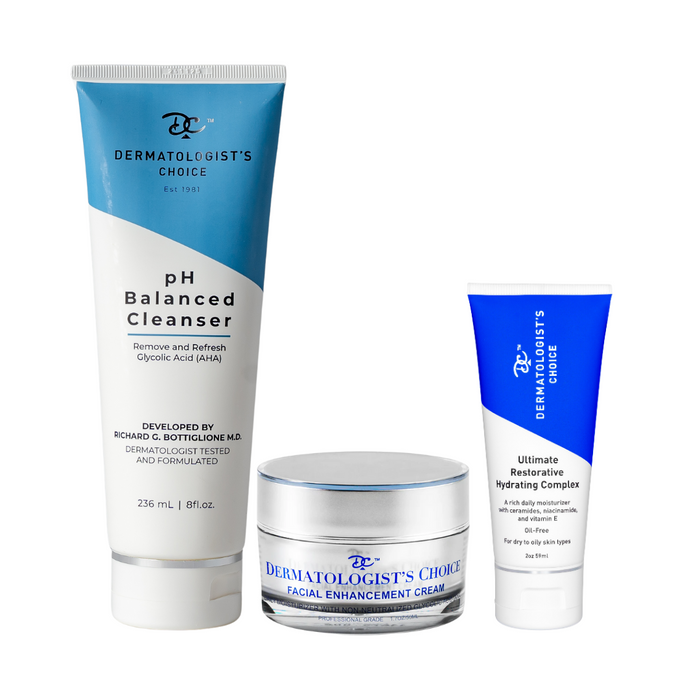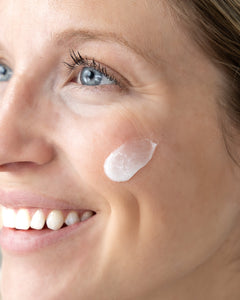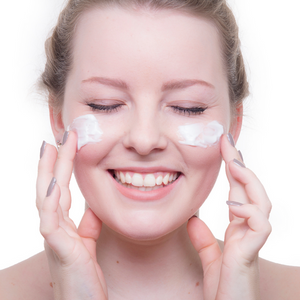By: Dr. Richard Bottiglione, M.D.
Board Certified Dermatologist and Founder of Dermatologist’s Choice Skincare

When it comes to understanding the differences between retinol and glycolic acid, it is important to delve into the specifics of each ingredient. Many individuals often inquire about the disparity between these two compounds, and as a dermatologist with nearly fifty years of experience, my aim has always been to educate my patients on the products they use on their skin.
Let's start by discussing retinol and its relation to the FDA-approved prescription Retin-A (tretinoin acid). While retinol may sound similar to Retin-A, it is crucial to note that they are not the same product. Retinol, in fact, is the chemically inactive form of Retin-A. Although retinol is more easily accessible as an over-the-counter option, its chemical inactivity renders it ineffective in treating various skin concerns. Unlike Retin-A or glycolic acid, retinol provides minimal to no anti-aging or acne benefits. Despite its derivation from Retin-A's active tretinoin acid, retinol's chemical structure as an alcohol diminishes its potency. It is essential to recognize that not all skincare products are created equal, and retinol simply cannot deliver the same results as Retin-A or glycolic acid.
Throughout my extensive career in dermatology, I have consistently utilized glycolic acid, predominantly through chemical peels, to address acne, wrinkles, and pigmentation issues. While the initial studies on glycolic acid were limited when I first began practicing, my experience with other acids in dermatology allowed me to recognize the effectiveness of acids as a treatment method. Over time, glycolic acid emerged as the standard acid for chemical peels, earning favor among both dermatologists and patients alike. Numerous clinical studies have demonstrated the benefits of glycolic acid in treating acne, aging, and pigmentation concerns. In my practice, I employ non-neutralized glycolic acid at a potent concentration that is not readily available in most over-the-counter skincare products.
In contrast to Retin-A, chemical peels were historically less accessible as they were primarily administered within a dermatologist's office. However, through regular treatments with glycolic acid chemical peels, I observed that patients achieved comparable, if not superior, results to those obtained from Retin-A. Additionally, glycolic acid proved to be gentler on certain individuals' skin, unlike Retin-A (tretinoin acid) which could cause irritation. The accessibility of glycolic acid for over-the-counter use further contributed to its appeal. This meant that individuals could experience the benefits of a glycolic chemical peel in the comfort of their own homes, without requiring a prescription. The effectiveness and convenience of glycolic acid led me to develop my own skincare line, Dermatologist's Choice, which aimed to provide patients with dermatologist-strength solutions easily accessible at home. The flagship product, Facial Enhancement Cream daily moisturizer+, is formulated with non-neutralized glycolic acid and has revolutionized the way my patients can obtain remarkable results without the need for in-office chemical peels or Retin-A prescriptions. Glycolic acid remains the number one over-the-counter competitor to Retin-A.
With decades of experience in the field, I have consistently achieved success with glycolic acid and Retin-A in my practice. That is precisely why I chose to develop Dermatologist's Choice with non-neutralized glycolic acid. As a medical professional, it is crucial for me to utilize treatments that have proven efficacy—and I have yet to witness the same level of results from retinol.
Although retinol may be experiencing a resurgence in new and trendy products, it is important to recognize that it is the same ingredient that faded out decades ago. Individuals will soon discover that it does not deliver the desired outcomes, only to be replaced by yet another trendy ingredient. Clinically speaking, retinol lacks the penetrative strength of Retin-A and glycolic acid, as it remains inactive and fails to reach beyond the superficial layer of the skin. Conversely, glycolic acid has the ability to deeply penetrate the skin, breaking down the "glue" that holds together dead and dull skin cells. This process facilitates the shedding of old skin, revealing a clear, vibrant complexion. When patients seek to diminish wrinkles, combat acne, or address pigmentation concerns, my go-to choice is glycolic acid. Its efficacy has stood the test of time, having been utilized for decades with exceptional results.
As I gathered feedback from my patients to develop a glycolic acid product tolerable for at-home use, patients reported noticeable benefits and, in many cases, less irritation compared to when they used Retin-A. My first and now flagship product, the Facial Enhancement Cream daily moisturizer+ with active non-neutralize glycolic acid, is the product that changed the way my patients could obtain dermatologist-strength solutions easily at home. After that initial launch, my patients continued to ask for more and celebrated how their skin had significantly improved.
Glycolic acid, the #1 over-the-counter competitor to Retin-A, has stood the test of time for decades in effectively addressing common skin concerns such as wrinkles, acne, and pigmentation. Derived from sugar cane, this Alpha Hydroxy Acid works specifically on the surface level of the skin, targeting the topmost layer to exfoliate and remove dull skin. By loosening the glue-like substance that holds dead skin cells together, glycolic acid facilitates the shedding of old, damaged layers, allowing new, clear skin to shine through.
The deep penetration of glycolic acid ensures a thorough breakdown of the 'glue' that binds dead and dull skin, revealing fresher, healthier-looking skin. This process not only addresses immediate concerns but also promotes long-term skin improvement. Many of my patients have experienced remarkable results, reporting a reduction in wrinkles, improved acne conditions, and a more even complexion.
The success and popularity of glycolic acid as a skincare ingredient have made it a go-to choice for those seeking dermatologist-strength solutions conveniently at home. Its ability to effectively exfoliate and reveal newer skin is why I consistently recommend it to my patients looking to enhance their skin's appearance. With glycolic acid, you can trust in a proven solution that has been trusted by professionals and individuals alike for its remarkable results.
In my decades of experience, I’ve had repeated success with glycolic acid and Retin-A.That’s why I developed Dermatologist’s Choice with active non-neutralized glycolic acid. In the medical profession, when I treat a patient, I need to know the treatment works - and I just haven’t seen the same results from retinol.
Every day, we hear about new ingredients and skincare products entering the market and promising life-changing anti-aging and acne results, only to fall out of favor several months later. However, glycolic acid has stood the test of time and remains a favorite of dermatologists and patients.
Even though retinol is making a comeback in new and trendy products, it’s the same ingredient that came and went decades ago. People will find out that it doesn’t work, and then another trendy ingredient will take its place. Clinically, it doesn’t have the strength to penetrate deep into the skin like Retin-A and glycolic acid do. Again, when we compare retinol and glycolic acid, retinol is inactive and doesn’t penetrate past the topical layer of skin.
To start incorporating glycolic acid into your skincare routine Dr. B. recommends the Age Management: Starter Set. This mild glycolic set is a great place to start. If you prefer more strength then graduate to the Ultra Anti-Aging Cream.
Questions? Reach out to your skin experts at help@dermchoice.com.




